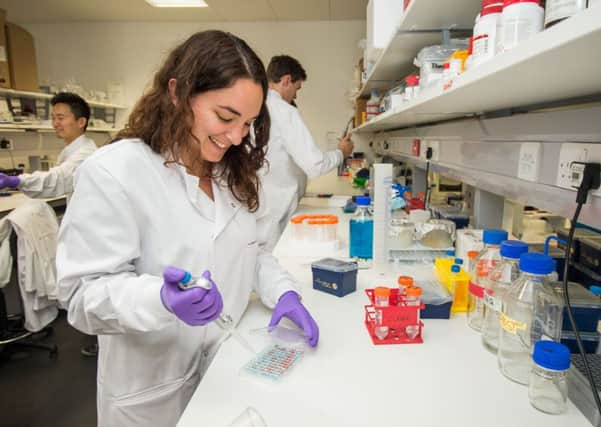Comment: Getting to heart of cardiovascular care


The truth is, you don’t know what research will benefit someone in 20 years’ time. But what we can say for sure is that research funded by supporters of the British Heart Foundation (BHF) over the past half century has successfully transformed the landscape of cardiovascular care.
I’m proud to have been an eyewitness to some of those changes. When I was a junior doctor, if somebody came in with a heart attack, all we could do was give them a painkiller, put them in a bed and watch them either recover or die. Now, we understand how a heart attack occurs, which is through a blood clot forming spontaneously inside somebody’s coronary artery. That’s largely thanks to BHF-funded research by Professor Michael Davies.
Advertisement
Hide AdAdvertisement
Hide AdHis work opened the door for drug companies to start making thrombolytic [clot-busting] drugs. We then funded a trial that showed if you treated patients with aspirin and a clot-busting drug, you could reduce heart attack-related deaths by 42 per cent. This changed the way heart attack patients were treated worldwide. But there’s a lot still to be done. People are surviving not just one, but two or three heart attacks. As a result, they have very badly damaged hearts and are living with heart failure, which is miserable.
Drugs that the BHF has helped trial can alleviate the symptoms, but we’re also funding research that could repair these damaged hearts.
The next “big breakthrough” is hard to predict so, rather than focussing on specific research themes, we aim to fund good scientists, regardless of the research question they are addressing. You need people you can trust to learn from an experiment, whether it goes the way they expected it to or not – it’s rare that you don’t learn anything in science.
While we can’t predict the future, we know some areas are worthy of investment. BHF research into genetics, for example, has already identified some of the genes responsible for two potentially fatal conditions: familial hypercholesterolaemia and hypertrophic cardiomyopathy.
The next phase is to integrate vast amounts of information, or “informatics”, which includes genetic and patient information. The BHF is starting to put money into big data: on patients, their behaviours and treatment– not just in tens, but in thousands or even hundreds of thousands of people.
Other exciting developments will come from the lab. We’re investing in research into inducible pluripotent stem cells, enabling researchers to study the hearts cells of people whose heart disease is thought to be genetically determined in the laboratory. We can’t study their heart cells because they are inside them. But we need to understand how those cells are misbehaving and then try different ways of treating that condition. New technology enables researchers to do this.
Scientists take a slither of skin from people who have this condition, convert these cells, in the laboratory, into stem cells, and then turn those into heart cells. What you end up with are heart cells from that individual patient with a genetic defect that may put them at risk of dying suddenly from heart disease. That means you can test their heart cells to find out what the fundamental molecular problems are, and try different drugs and strategies to come up with something that modifies the way their heart cells work. Hopefully in the future, we’ll be able to treat those people with a drug specifically designed for their own heart cells and their heart problem.
Gene therapy is only now beginning to bear fruit after 20 years of research. While some would say it hasn’t fulfilled its promise, we needed to do the science to make it fit for purpose. That science has been done, and research we’re part-funding at Imperial College London is now running a trial of gene therapy to treat patients with severe heart failure.
Advertisement
Hide AdAdvertisement
Hide AdBHF-funded research has been successful in prolonging life, but not as successful in improving quality of life. That’s where I think the emphasis will be in the next few years.
• Professor Peter Weissberg is the British Heart Foundation’s medical director. A version of this article appears in the new edition of the BHF’s membership magazine Heart Matters. Heart Matters has a free helpline at 0300 330 3300 and is a free membership service. For more information visit bhf.org.uk/heartmatters
SEE ALSO